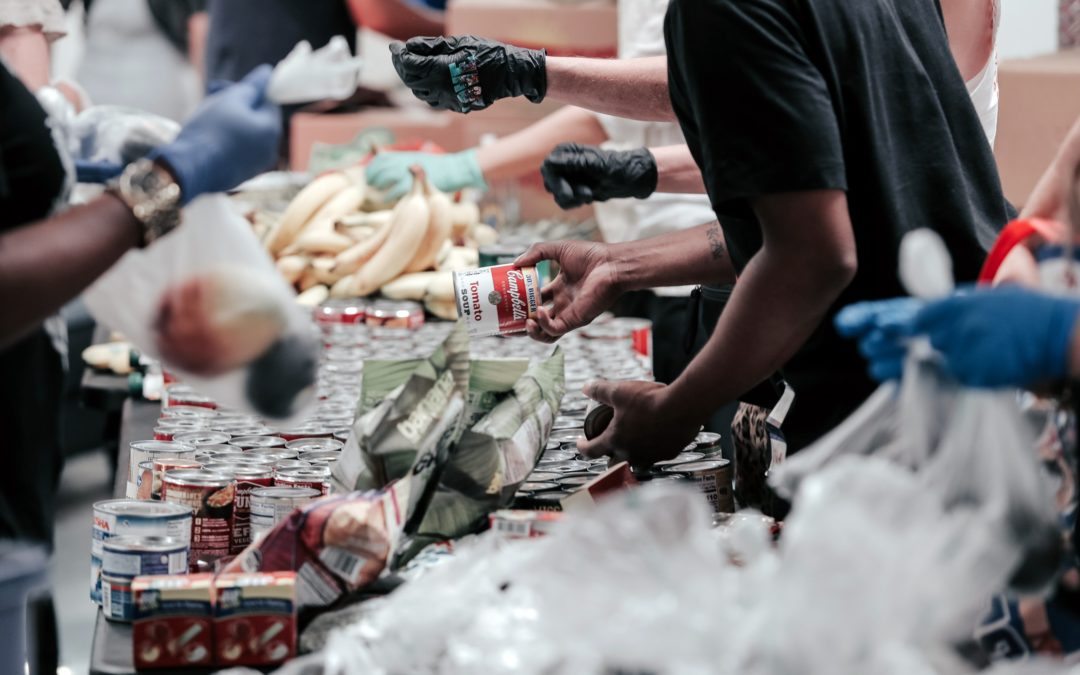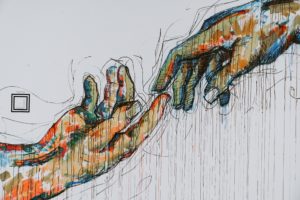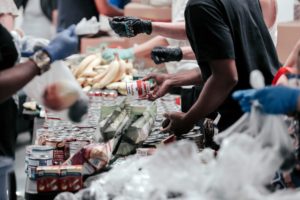
Philanthropists and politicians: Religion is not a problem to solve, it’s a partnership opportunity
 (RNS) — In a period of significant pressure on our democracy, our health and our overall well-being as a people, faith has provided a hidden infrastructure that has held America together. We miss out on much good when we do not recognize the role of faith and religious institutions in our communities.
(RNS) — In a period of significant pressure on our democracy, our health and our overall well-being as a people, faith has provided a hidden infrastructure that has held America together. We miss out on much good when we do not recognize the role of faith and religious institutions in our communities.
Last month, the Bridgespan Group released a report confirming what many of us already knew: While faith-inspired organizations, congregations and individuals make up a large percentage of America’s civic and social landscape — especially when it comes to providing aid to low-income people and those on the margins — they are significantly underrepresented and overlooked by philanthropic institutions who fund in these areas. Although faith is often in the headlines as a subject of political intrigue and a tool of partisan warfare, in the lives of millions of Americans, faith is felt closer to home, helping them to survive and make it week to week, day to day.
If you’re not familiar with the basic state of play, the findings of the Bridgespan Group might strike you as something more problematic than simply a missed opportunity. The report finds that “faith-inspired organizations account for 40 percent of social safety net spending across a sample of six cities, which vary in size and demographics. Yet, while some individual philanthropists and community foundations have recognized faith-inspired organizations as platforms for impact, that perspective has not translated into funding from the largest institutional philanthropies — particularly those seeking to address the effects of poverty and injustice.”
The report quotes Kashif Shaikh, co-founder and executive director of the Pillars Fund, a grantmaking organization that invests in American Muslim organizations, who rightly points out: “Secularism is the dominant narrative in the U.S., but often less so in vulnerable communities, in my experience. It’s a disservice to not even acknowledge it.”
Indeed, while it is certainly within the rights of philanthropic institutions to “not do religion,” such an approach undermines any meaningful, holistic commitment to community or place-based philanthropy in much of this country and in many places around the world. At best, a categorical rejection of religious engagement among institutions working in significantly religious communities amounts to an acknowledgment of an organizational deficiency. At worst, it adds up to a willful act of disruption and disrespect for the values, beliefs and culture of the communities that are “served.”
The problem is not just in philanthropy. In politics and public life, faith is often viewed as a sword or a shield for one’s own agenda. Religious communities are too rarely considered on their own terms, categorized instead as political foe or ally. This dynamic contributed to an unfortunate and harmful tenor of conflict between some governments and religious communities as we sought to mitigate COVID-19. These conflicts emerged, in part, because many elected officials viewed religious communities as a problem to solve rather than a potential partner. Politicians need to start viewing faith communities as not just sources of votes, but sources of wisdom and expertise.
Philanthropy for Active Civic Engagement (PACE) detected a lack of understanding for how faith and civic health are tied together, and in particular, how faith communities are helping people build relationships and work together across difference. In 2019, they launched a funding and learning initiative, Faith In/And Democracy, to support faith-inspired organizations and efforts that are helping to hold our communities and our democracy together.

As an adviser to this program, I have been able to see the tireless, often thankless, work grantees of the program have advanced. We set out to determine if there was a distinct field of faith organizations and actors supporting our civic life, and our efforts have been met with a resounding “yes.” In its pilot year, over 130 qualified organizations applied to the program, and five were selected to participate in a robust learning community that included a range of advisers as well as philanthropic leaders committed to this work. Together, we grappled with what COVID-19 might mean for our grantees’ work, and we saw up close how they discovered creative ways to persist in their mission despite numerous roadblocks. During an election year when some sought to stir up religious resentment and conflict, our grantees were working to strengthen our democracy and build bridges of faith between disparate communities.
Through the crises of this year and my experiences working in the White House under President Obama, I have come to rely on the fact that if there is a crisis or challenge in the news, there are people of faith at work to address it for the common good. Faith is always at work.
As we turn our focus from lockdowns to vaccinations, public officials are turning to religious communities for support. In recent weeks, Dr. Francis Collins and Dr. Anthony Fauci participated in a service with D.C.-area clergy focused on the vaccine. Dr. Fauci has referred to the imperative to get adults vaccinated as a “‘love thy neighbor’ opportunity.” After relative dormancy during the Trump years, President Biden has reestablished and reinvigorated the White House Office of Faith-based and Neighborhood Partnerships, which should ensure the federal government is able to effectively partner with the faith community to keep the national response to COVID-19 on track.
If respected, valued and included, people of faith and religious institutions can be partners on so many of the issues at the top of the national agenda. For example, the Biden administration should not merely welcome the support of people of faith for the anti-poverty provisions in the American Rescue Plan, but rather, invite faith leaders to champion the provisions, to claim them as a harbinger of a new national commitment to better care for the “least of these.”
Likewise, we cannot have a conversation about strengthening our democracy without recognizing the role of faith as a molder of civic character and a shaper of civic consciousness. Faith communities’ value to our democracy does not only show up for “Souls to the Polls,” but in the countless ways in which faith beckons Americans outside of themselves and toward their neighbors. In many communities, congregations serve as civic incubators, forums for strengthening muscles of service, negotiation and love.
Philanthropy, governments and other sectors should never instrumentalize faith, nor impose their values on faith communities. The point is not that faith communities should be viewed as potential avenues for advancing someone else’s agenda — rather, that so much of what we struggle to do and be is already attended to by the resources inherent in many religious communities.
Nothing does what faith does the way faith does it. We’re going to need it in the days ahead, just as it has been here — quietly, at times — all along.
(Michael Wear is founder of Public Square Strategies, LLC, and an adviser to PACE’s Faith In/And Democracy initiative. Heserved in the White House as part of President Barack Obama’s faith-based initiative. The views expressed in this commentary do not necessarily reflect those of Religion News Service.)
